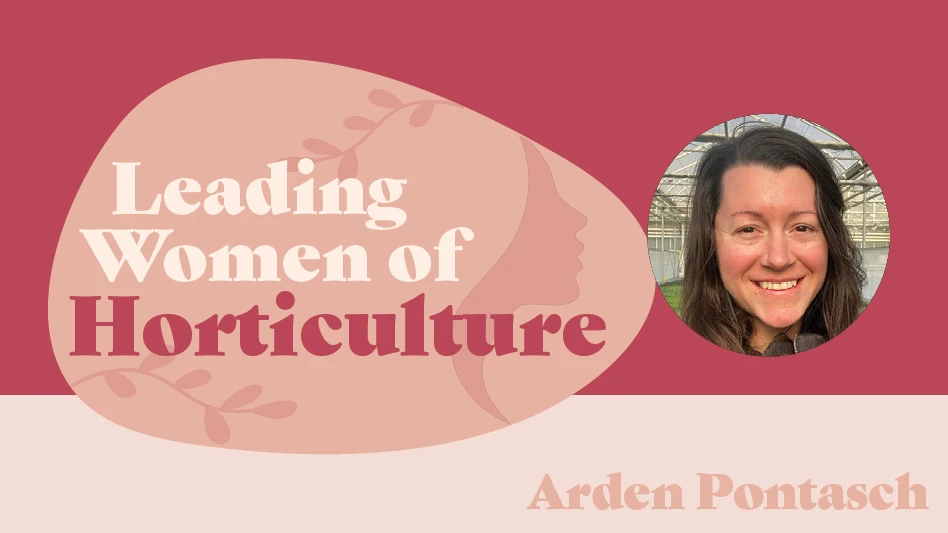Are you an employee of your nursery? More importantly, at least to lawmakers and the Internal Revenue Service, does your business properly compensate you (the owner/employee) for the services that you provide to the business?
A number of factors contribute to the confusion that this simple question often triggers. With a sole proprietorship, all income from the nursery business goes into the owner's pocket, while expenses are paid from those pockets with anything left labeled as profits and taxes paid. Although a sole proprietor is often legitimately called an "employee" of the business, in reality, the owner is the business.
Wages and Dividends
When a separate business entity enters the picture, things begin getting confused for tax purposes. Questions about salaries paid to the owner/employee; whether payroll taxes have been — or should have been — withheld; should those distributions have, more accurately, been labeled as dividend payments; or will the business be penalized if it keeps profits within the business rather than paying them to the owner/employee as wages or dividends?
Generally, every owner/employee of a profitable nursery should receive amounts labeled as both wages and dividends. The business can reward owner/employees with both bonuses and fringe benefits, although favoring the owner/employee at the expense of others within the business is a definite no-no in the eyes of the IRS.
 While dividends paid by a nursery business are not deductible by the business, a tax deduction can usually be claimed for some but, again, not all of those amounts distributed and/or paid to owner/employees as wages or salaries.
While dividends paid by a nursery business are not deductible by the business, a tax deduction can usually be claimed for some but, again, not all of those amounts distributed and/or paid to owner/employees as wages or salaries.
The type of entity under which the business operates (sole proprietorship, partnership, corporation, S corporation, limited liability corporation (LLC), limited liability partnership (LLP) or personal services corporation (PSC)) contributes significantly to the confusion in this area. So, too, do questions such as whether profits are considered dividends or wages, whether too much compensation was paid to a shareholder/employee or excessive profits retained in the business, both of which draw fines and penalties when discovered.
Sole Proprietors
Even that most basic of business entities, the sole proprietorship, poses potential pitfalls for the unwary owner/employee. Under our tax rules, the term "employee," unless otherwise indicated, specifically includes owner/employees who participate in an unincorporated enterprise as either a partner or a sole proprietor. When reference is made to the "employer," a sole proprietor is treated as his or her own employer, while a partnership is considered as the employer of each partner. Largely due to liability considerations, the sole proprietorship is becoming increasingly rare.
S Corporations
The S corporation remains the single most popular entity affording flexibility and some protection from liability. An S corporation is an incorporated nursery that has chosen to be treated as a pass-through entity. In general, an S corporation does not pay income tax. Instead, the corporation's income and deductions are passed through to shareholders much like a partnership. The shareholders report the income and deductions on their own income tax returns.
The tax treatment of fringe benefits paid to employees of an S corporation is different from owner-employees who are not shareholders, or who own 2 percent or less of the outstanding S corporation stock. The fringe benefits paid non-shareholder employees are tax-free. They are excluded from the employee's taxable wages. Those non-shareholder fringe benefits are deductible by the corporation.
Employee/owners owning more than 2 percent of the S corporation stock are not considered employees for fringe benefit purposes, and their fringe benefits may not be tax-free. More-than-2 percent owners are treated in the same manner as partners in a partnership.
Payments to a partner for services are considered guaranteed payments to the extent the payments are made without regard to the income of the partnership. Guaranteed payments are treated as made to a person who is not a member of the partnership — but only for certain purposes. This generally means that the payment is included in the income of the partner.
Dividends vs Employee Compensation
Profits from closely-held nurseries can be distributed as either wages or as dividends. Double-taxation, once at the corporate level and again at the shareholder level is a problem for many owner/employees.
Typically, a closely-held, incorporated nursery business avoids double-taxation either by paying most of its profits in the form of a bonus, or by leaving profits in the business as accumulated earnings.
The IRS and the courts frequently scrutinize year-end bonuses often re-characterizing the bonus as a disguised dividend. With the reduced tax rates on dividends, the focus today is on closely-held, incorporated nurseries that have traditionally paid a large bonus and no dividend but have now switched to the payment of a large dividend and no bonus since the dividend rates were reduced.
The non-payment of sufficient dividends relative to profits frequently subjects incorporated nurseries to the accumulated earnings tax — a penalty for retaining already-taxed profits in the business rather than distributing them as dividends.
 Reasonable Compensation
Reasonable Compensation
Each year, the IRS reminds S corporations that they must pay reasonable compensation (subject to employment taxes) to shareholder/employees in return for the services that a shareholder/employee provides to the incorporated nursery before a non-wage distribution may be made.
In the case of compensation, bonuses and other distributions made to S corporation/shareholders, a major question is often: What amount is "reasonable" for that particular shareholder/employee. And, of course, whether the amount paid for the services provided constitutes "reasonable compensation."
Self-employment Tax
Although shareholders of a so-called S corporation are treated much in the same manner as partners, they are not subject to the self-employment tax on their share of the S corporation's ordinary income attributable to the operation of the nursery.
Sole proprietors as well as many partners are subject to a so-called "self-employment" tax which is the social security tax, both the employee's and the employer's share, of 12.4 percent and a the Medicare tax of 2.9 percent. The tax is based on self-employment income defined as "net earnings from self-employment."
Taxing Questions
Spouses who jointly own and operate a nursery and share in the profits and losses are considered partners in a partnership, even if there is a formal partnership agreement. The partnership is considered the employer of any employees, and is liable for any employment taxes due on wages paid to its employees.
If a spouse is an employee, not a partner, social security and Medicare taxes must be paid. Wages for those who work for a spouse are subject to income tax withholding and social security and Medicare taxes, but not to federal unemployment (FUTA) tax.
Although payments for the services of a child under the age of 18 who works for his or her parent in the nursery are generally subject to income tax withholding, they are not subject to social security and Medicare taxes if the parents' operation is a sole proprietorship or a partnership. Payments for the services of a child under age 21 who works for his or her parent are not subject to FUTA tax.
Over the age of 18, the services of a child or spouse are subject to income tax withholding as well as social security, Medicare and FUTA taxes if he or she works for:
- A corporation, even one controlled by the child's parent or the individual's spouse
- A partnership, even if the child's parent is a partner, unless each partner is a parent of the child
- A partnership even if the individual's spouse is a partner, or
- An estate, even if it is the estate of a deceased parent.
Finally, to both profit from and avoid the potential pitfalls, planning early and often as things change or as the nursery grows, is essential. Professional assistance can ensure that you don't run afoul of the tax laws.
Mark Battersby is a freelance writer in Ardmore, Pa. His tax and financial features have appeared in leading business magazines and trade journals for more than 25 years.

Explore the January 2012 Issue
Check out more from this issue and find your next story to read.
Latest from Nursery Management
- The Growth Industry Episode 3: Across the Pond with Neville Stein
- Trends: Proven Winners 2025 perennial survey shows strong demand
- Online registration opens for the 2025 Farwest Show
- Sustainabloom launches Wholesale Nickel Program to support floriculture sustainability
- Plant breeding as an art
- Society of American Florists accepting entries for 2025 Marketer of the Year Contest
- American Horticultural Society welcomes five new board members
- Get to know Christopher Brown Jr. of Lancaster Farms





